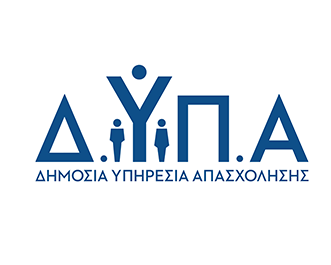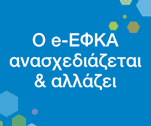
Pilot Training Actions
- Elefsis Pilot- open type
(Prerequisite Action – Conditionality by the World Bank and the Institutions)
The Greek Public Employment Service implements the Action “KM2 Elefsina Pilot Project”, within the framework of active open employment policies.
The aim of the action is to further strengthen the prospect of integration of the unemployed into the labour market through the acquisition, updating or expansion of professional knowledge and skills of the beneficiaries and the acquisition of relevant certification.
The programme is addressed to unemployed persons aged 45 years and over, registered in the unemployment register of the Elefsina KPA2 (Employment Promotion Centre) for at least 6 months, residing in the Municipalities of Elefsina, Aspropyrgos and Mandra. The services provided, depending on the needs of the beneficiaries, include training in basic, horizontal and vertical skills, as well as internships. Upon completion of the training follows Certification.
- Pilot Action - Comprehensive intervention for unemployed Youth up to 29 with low Skills
Young people with a low level of education and no vocational education are among the most difficult groups to integrate into stable employment, with high rates of unemployment and precarious work and a risk of social exclusion. For the stable employment integration of this group of unemployed young people, in all European countries integrated interventions-programs are planned and implemented that include a combination of training and employment actions.
Even more in our country, which has experienced a very long economic crisis, young people up to 29 years old, with very low to low qualifications [high school graduates- General Lyceum or Vocational Lyceum - Professional Schools (EPAS) - Professional Training Institutes (IEK)], who are not highly specialized, nor have a lot of professional experience and have the highest unemployment rates in the EU, as well as intense job insecurity.
In order to address this problem, an intervention was designed to fill jobs in specialties that are in demand and relevant to the specific target group, combining employment with personalized vocational training. The training will take place in thematic areas that have emerged after a study of all available statistics on job supply and demand for skills in various sectors of the economy. Elements of the needs diagnosis mechanism of the National Institute of Labour and Human Resources (NILHR), ELSTAT, ERGANI, Greek Public Employment Service employment programs and Unemployment, SEV surveys, General Confederation of Greek Workers (GSEE) and Manpower research were evaluated. The action will be implemented in 2021.
- Pilot Action - Integrated Intervention for Recognized Refugees
The employment integration of refugees is an area of high priority, given the dimensions of the problem in recent years, but also the recent re-arrival of massive refugee and migrant flows.
The Greek Public Employment Service plans to intervene, at a pilot level, first of all, for the subsidy of a thousand (1,000) recognized refugees, registered in its register, adopting an integrated approach, which includes a wide range of interrelated actions, such as linguistic-intercultural training, profiling of personal characteristics, personalized, but also group counseling and guidance, vocational guidance, vocational training actions, according to the needs of enterprises for specific specialties and placement in corresponding jobs, as well as the mapping of the qualifications to be acquired in an individual electronic portfolio (e-portfolio).
In this context, the results, the products - innovative methods and tools - and the lessons of the two-year duration (2017-2019) of the DYPA Pilot Action "ERASMUS+ I.Ref.SoS" (Innovative Response for Facilitating Young Refugees Social Support, aged 16-24) will be exploited and expanded, through the resources and tools of the European Social Fund.
The logic of the pilot, initially to a thousand beneficiaries, is chosen in order to lead to useful conclusions for the further development of the action, in a wider refugee population. This choice is considered crucial, given the specificities and obstacles faced by the target group, in relation to the integration into the labor market, as well as the difficulty of businesses to recruit, especially during the current period.
The aim of the project is to develop a permanent, effective labor integration mechanism to promote the integration of the refugee population into the labor market, in accordance with the characteristics of the unemployed recognized refugees, as well as the needs of businesses, in specific specialties.
The aim of the project is to develop and test the implementation of an integrated package of interrelated actions, concerning both the appropriate preparation of refugees for labor integration and the systematic cooperation with enterprises, in order to achieve the placement of refugees in jobs and to develop a flexible, permanent labor integration mechanism, which will be adapted to the circumstances.






















